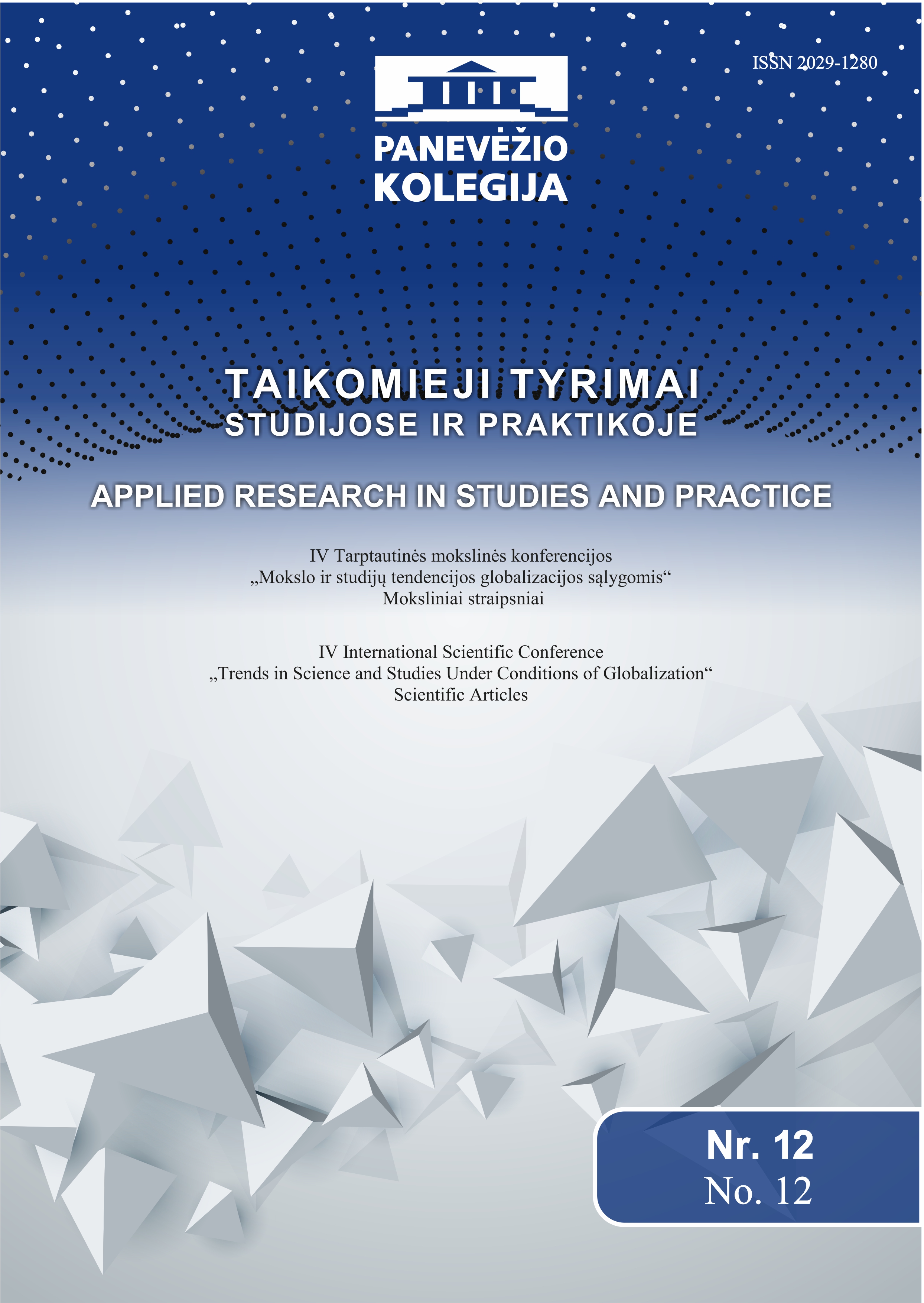The Social and Ethical Aftermath of Big Data
The Social and Ethical Aftermath of Big Data
Author(s): Anna Waligórska-KotfasSubject(s): Library and Information Science, ICT Information and Communications Technologies, Business Ethics, Socio-Economic Research
Published by: Panevėžio kolegija
Keywords: knowledge pyramid;data processing;information ethics;Big Data;
Summary/Abstract: Technological transformations of the 20th century have brought extensive socio-economical changes. The present-day society and economy are founded on acquisition, retrieval, distribution, and manipulation of data and information and consequently on creation of both explicit and tacit knowledge. The reflections of this paper are focused on Big Data as the major instrument of today’s data processing in order to obtain information and knowledge. The objective of the article is to discuss the Big Data phenomenon and present its promise and peril from the social, economic, ethical, and ontological perspective. The article is based on literature studies. Epistemologically, knowledge as a key resource of today's enterprises and organizations is created by processing, interpretation and interconnection of information; which in turn is based on data, raw facts, signs and symbols that by categorization, condensation, contextualization and correction become purposeful and relevant. The pinnacle of the hierarchy is wisdom recognized as accumulated knowledge allowing to act critically in new situations and interconnected with ethical judgement. The 21st century exponential growth of data together with the increase in the computing power, the research on artificial intelligence, and data mining has led to the creation of tools to analyze large, diverse, variable, and often unstructured data sets, referred to as Big Data, in order to transform them into purposeful information and consequently to interconnect and interpret into knowledge. The most concisely the term of Big Data is defined as datasets that cannot be processed or analyzed using traditional processes or tools. Big Data is characterized by the following parameters: volume (currently counted in petabytes or exabytes), variety (various data sources such as: spreadsheets, databases, emails, photos, videos, PDFs, audio, websites, tweets, blogs, comments, tags, SMS messages, WiFi location tracking), velocity (real-time data processing), veracity (data relevance in order to avoid bias and noise). The Big Data pipeline architecture consists of five stages such as: acquisition, extraction, aggregation, analysis, and interpretation.The reasoning founded on Big Data can offer extensive insight into many complex issues and can improve the quality of administration on both government and local level, as well as scientific research, let alone business decision-making. Notwithstanding the enormous potential benefits of using Big Data, its menace needs to be recognized. Although the data for analysis is collected anonymously and from legitimate sources with law-restricted access, one can doubt whether Internet users consciously accept the rules and privacy policy of the services they use. Furthermore, the ongoing controversy of so-called public data in the social media sites is the battleground between privacy campaigners and transparency supporters. Additionally, acquired data may not be adequately protected and therefore can leak, be traded or stolen. Moreover since anonymity in the Internet is apparent, even aggregated data can be sensitive and may unleash surveillance, or even discrimination, against citizens by both the state and corporations. On top of that, the process of deciding which data attributes and variables are essential and which could be ignored together with the algorithms applied in computerized data sifting tend to be error-prone so that patterns are identified where none are existing. The social approach to the Big Data threats is correlated with reinforcement of the digital divide due to the fact that the advantaged are those with extensive and sophisticated computational skills. From the ontological perspective the peril of Big Data is induced by the question whether a scientific construction of theories and models, particularly in social sciences, might be replaced by search for correlation, whatever intricate and complex. Can science advance without coherent models, unified theories, or mechanistic explanation and rely on automatically generated correlations? Can quantity mean quality to such extend that the aura of Big Data infallibility is able overpower epistemological objectivity? Concluding, in the author’s opinion Big Data is an essential and inevitable element of the realms of the information society and the knowledge-based economy in the 21st century. Big Data processing can definitely support organizational and business progress of enterprises and institutions, both public and private. Notwithstanding, information and knowledge founded on Big Data can inflict some ethical, social and ontological challenges regarding coexisting elements such as users’ identity (both on- and offline), their privacy and digital abilities. The Big Data analysis may inflict privacy interference, manipulation, misinterpretation, and consequently culminate in social engineering or deepening social stratification by surveillance, let alone discrimination. It is therefore postulated to foster public education and implement legal regulations which could execute some elementary principles, namely the transparent data collection, the introduction of data lifespan so that data would be eradicated after a given period of time, and the empowerment of users to have greater control over the access to and processing of their personal data in order to protect privacy, identity, and confidentiality.
Journal: Taikomieji tyrimai studijose ir praktikoje
- Issue Year: 12/2016
- Issue No: 1
- Page Range: 92-100
- Page Count: 9
- Language: English

